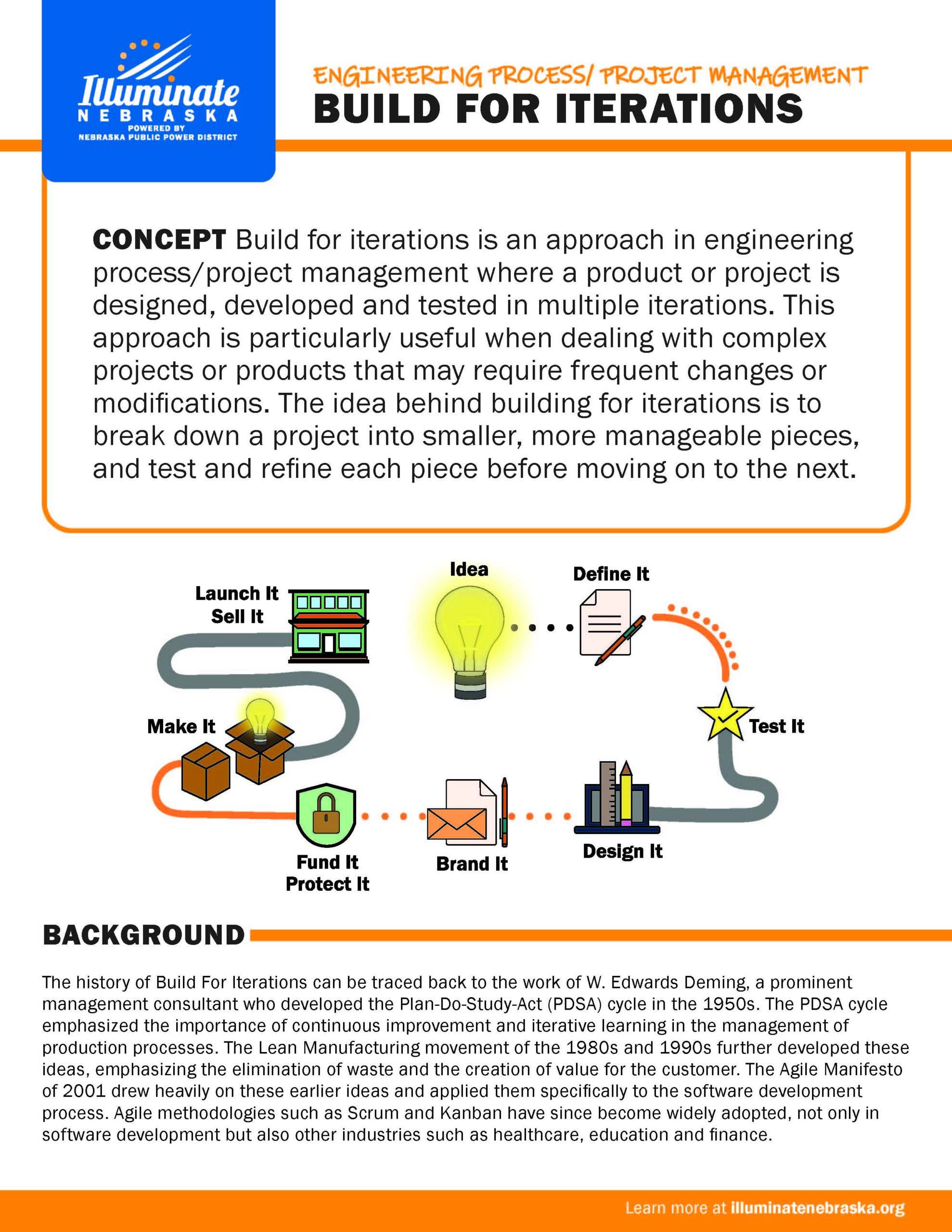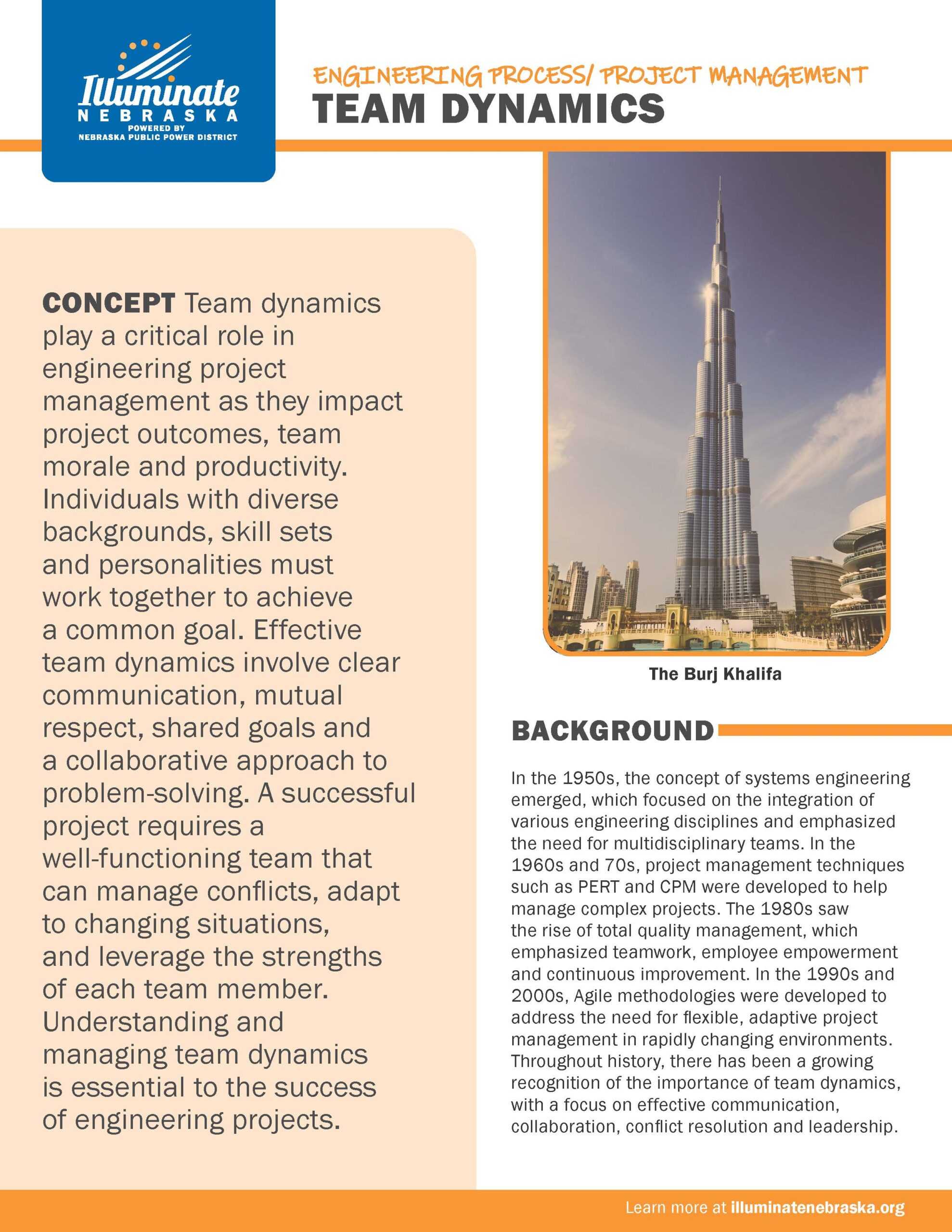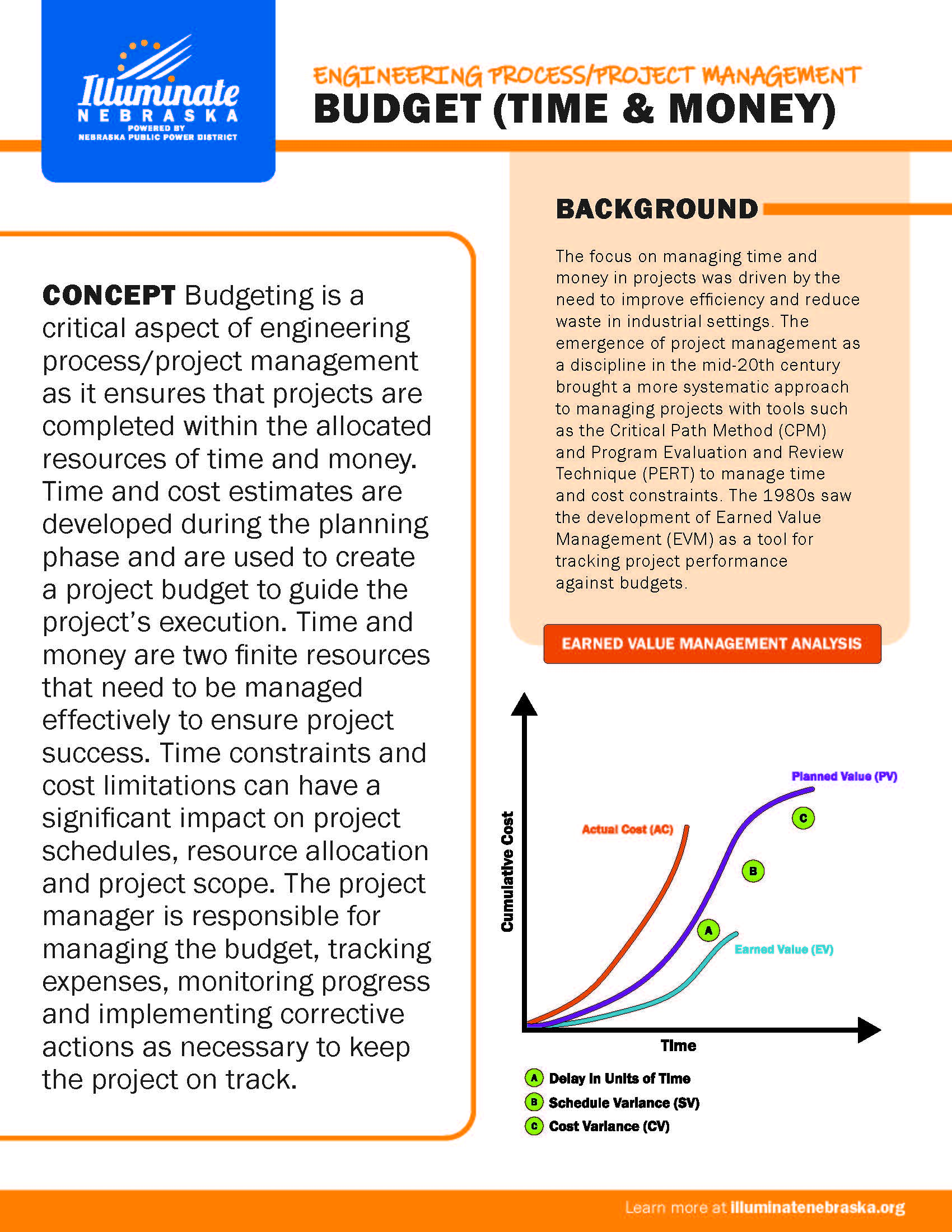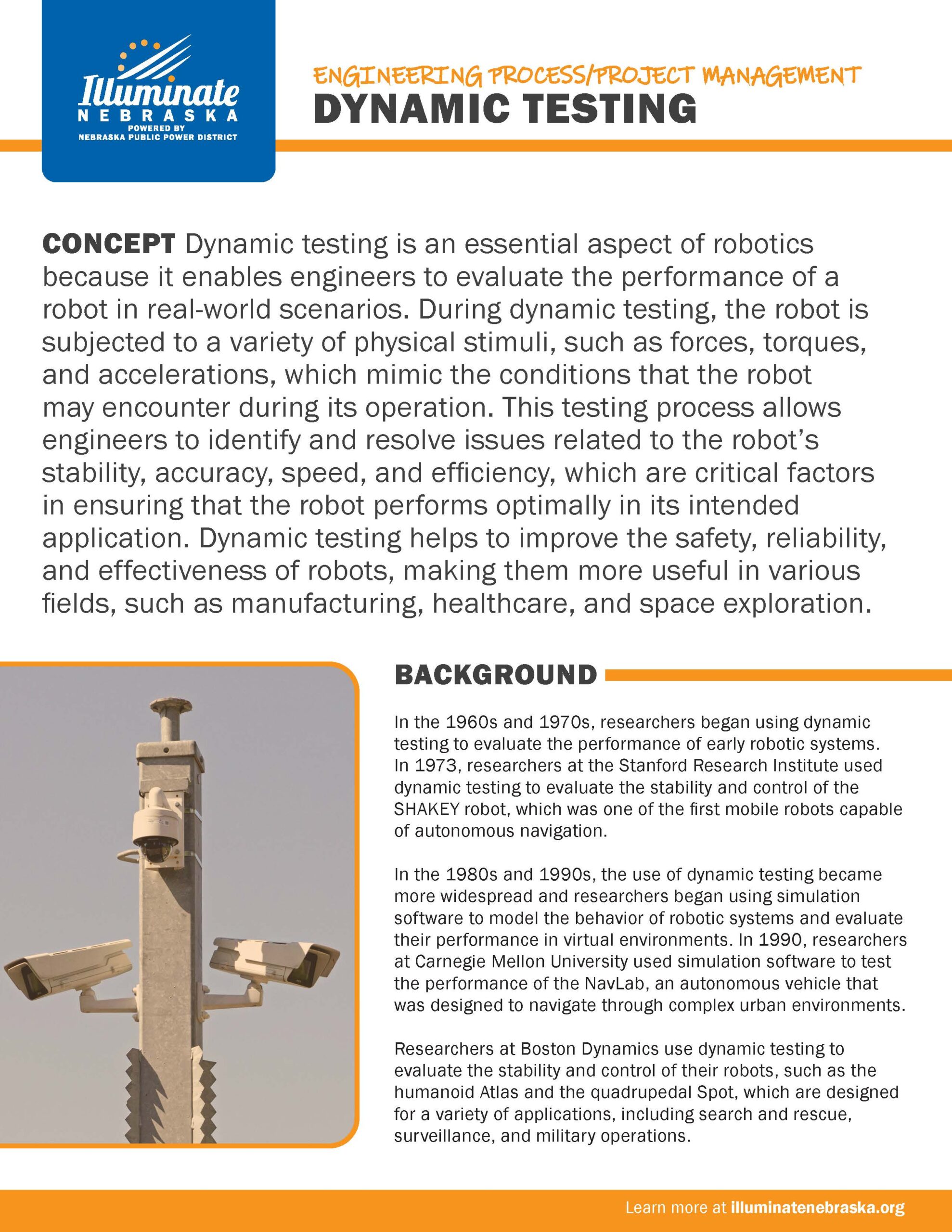Engineering Notebook Design
Coming Soon!
Build for Iterations
Build for iterations is an approach in engineering process/project management where a product or project is designed, developed and tested in multiple iterations. This approach is particularly useful when dealing with complex projects or products that may require frequent changes or modifications.
Team Dynamics
Team dynamics play a critical role in engineering project management as they impact project outcomes, team morale and productivity. Individuals with diverse backgrounds, skill sets and personalities must work together to achieve a common goal.
Budget (Time and Money)
Budgeting is a critical aspect of engineering process/project management as it ensures that projects are completed within the allocated resources of time and money. Time and cost estimates are developed during the planning phase and are used to create a project budget to guide the project’s execution.
Dynamic Testing
Dynamic testing is an essential aspect of robotics because it enables engineers to evaluate the performance of a robot in real-world scenarios. During dynamic testing, the robot is subjected to a variety of physical stimuli, such as forces, torques, and accelerations, which mimic the conditions that the robot may encounter during its operation.




